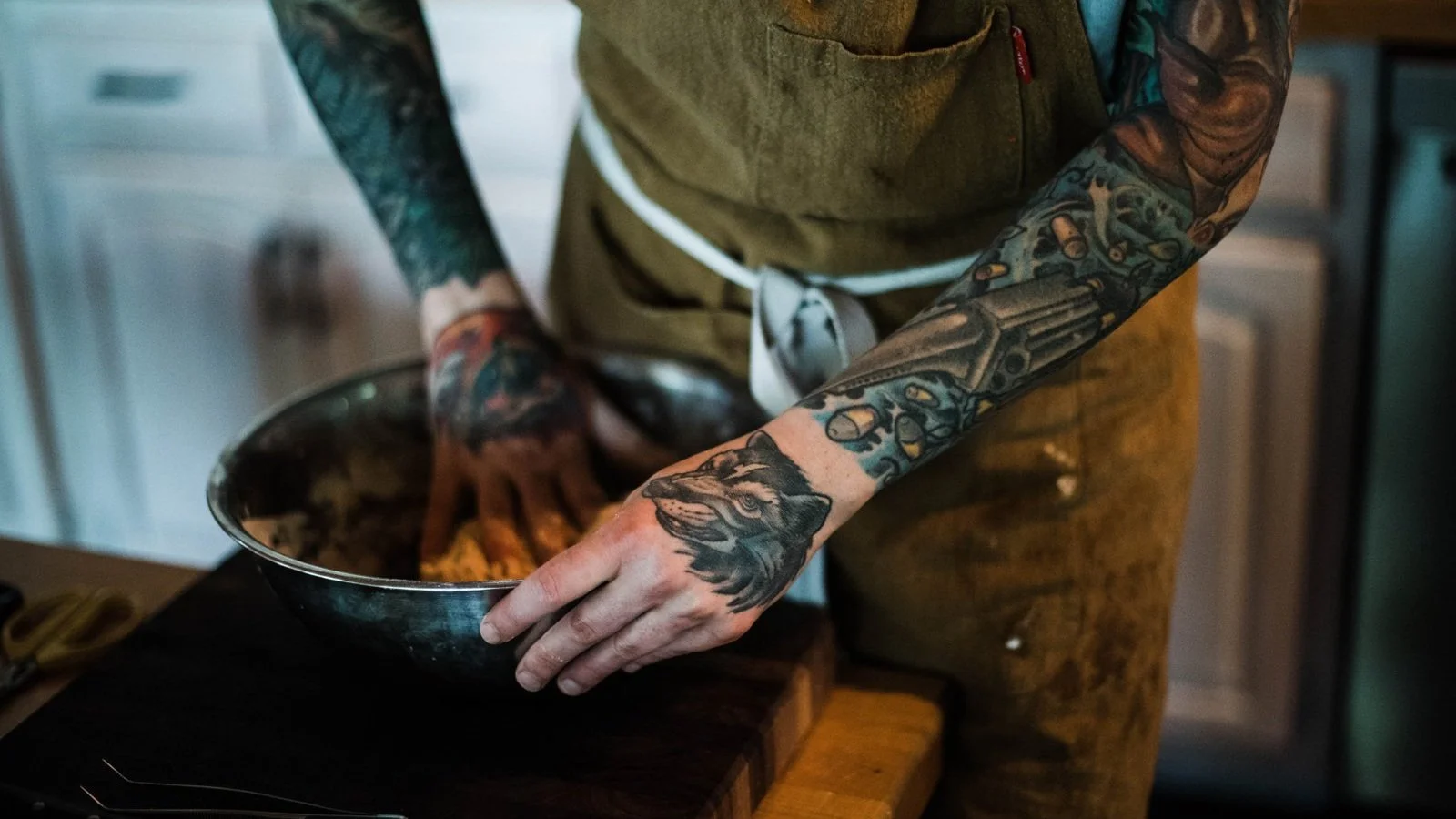
‘Four hours pass like this, with an exquisite parade of creative dishes, but I'm too lost in merry banter to notice the time. Like riding a bicycle, the old rhythms of confabulation come roaring back, and all the anxiety I've been hanging on to falls away. Belly laughs echo through the rafters as the dogs run maniacal circles through the house. Iliana wipes down the counters, and [a server] checks and rechecks that our glasses are full. And indeed they are.’
Ashlea Halpen, Condé Nast Traveler
‘Home to Regan is beyond the reach of modern technology, tramping the loamy forest foraging for mushrooms, wood sorrel and tiny wild strawberries. For now, that means deep in the Hiawatha National Forest on Michigan’s Upper Peninsula, on a 40-something-mile-wide slip of land between two Great Lakes, Michigan and the stormy Superior. There are jack pines with branches hanging like blousy sleeves and birches whose silvery leaves flicker in the wind…
The raison d’etre of the weekend is a multicourse Saturday-night dinner that begins with a young fermented maple leaf fried to a crisp vellum finish. Funky charred onion paste and a scattering of tart, lemony ants top it. There’s a salt-roasted beet speared on a pine bough, jewel-like with a lacquer glaze of elderflower syrup, butter and vinegar. She slow-bastes a confit-like dish of oyster mushrooms until they’re almost translucent. An amino soy sauce made with toasted barley koji adds a soulful baritone note, the whole dish strewn with tiny green milkweed buds. ‘
Deborah Reid, Washington Post
‘The Milkweed Inn is all Pendleton blankets, deer taxidermy and wood smoke. The water pressure is great, and the basement is filled with new fishing gear and inflatable kayaks. A copy of the 2016 Best New Chefs edition of Food & Wine is in one bathroom. There Ms. Regan is on the cover, the only woman in a sea of 10 men.
If the chef René Redzepi (also a Regan fan) is the Nordic godfather of a culinary movement that cultivates a deep connection to the surrounding landscape, Ms. Regan is its Greta Thunberg, steering her tiny boat steadily into uncharted waters and attempting a new definition of what it means to be an American chef.’
Kim Severson, The New York Times
‘As for the “inn” descriptor, she’s (currently they/them) harking back to the days when an inn was a place where guests would stay, eat and drink. The “milkweed” name is an homage to one of Regan’s favorite plants to forage in the spring, summer and late summer.
“I think it’s just beautiful, and it looks beautiful,” Iliana (Lane) Regan said.
The Milkweed Inn is self-sustaining, with a little garden that Regan will harvest food from. [Regan] will begin taking reservations now for weekends at the end of August through (October.)’
Grace Wong, The Chicago Tribune
‘But this region remains wild, mostly ungentrified, a place that draws the intrepid tourist, the tough and the endlessly curious—those daredevils and headlong adventurous types looking for a new safari. It takes another sort altogether, though, to up and move there for half the year. Enter Milkweed Inn, super-lauded passion project of Michelin-starred chef and award-winning author Iliana Regan. While elements of luxury and artisanal culture (the odd boutique hotel, fine dining establishment, winery, etc.) have in recent years sewn themselves into the U.P.’s widespread wilds, none—to my knowledge, and I’m a Yooper—have debuted with such force and critical acclaim as Milkweed.’
Andrew Stark, Lavender Magazine
‘Iliana (Lane) Regan came from the woods, chasing chanterelles and trouble in rural Indiana before moving to Chicago and becoming one of its most celebrated young chefs at their Michelin-starred eatery, Elizabeth. So when they decided to trade the city for a remote nook of Michigan’s Hiawatha National Forest to open the culinary-focused Milkweed Inn in 2019, it felt like a homecoming of sorts. “I’ve always dreamed of having a bed and breakfast,” Regan explains, noting that their great grandmother ran an inn in Poland in the early 1900s. “Cooking and foraging in the woods is part of my family inheritance.”’
Adam Erace, Artful Living

